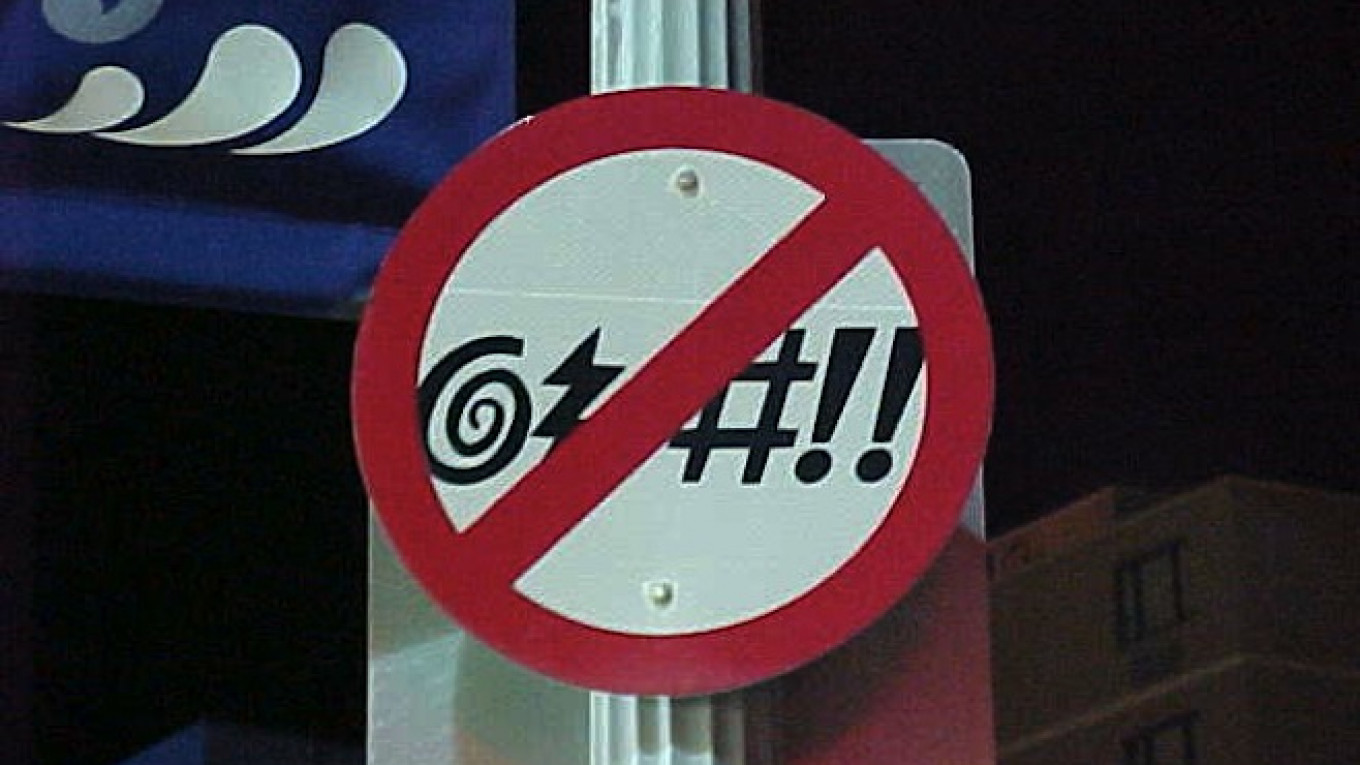The State Duma has passed a bill that would ban the use of expletives from films, theater and other works of art, casting doubt over the fate of some contemporary shows whose scripts include strong language.
The bill, approved by the Duma in its final reading on Wednesday, would also require books and video disks that contain expletives to be sold in sealed packages stamped with a warning: "contains profane language."
A council of experts will determine exactly what counts as an expletive, according to the bill published on the parliament's website.
The bill would also ban films that contain expletives from theatrical release, and would punish movie theaters that play such unlicensed productions by a fine of up to 100,000 ($2,797) for the first offense, and double that for a second offense. The bill, which would similarly ban the use of expletives on the radio and television, did not specify whether bleeping offensive words would make them acceptable.
Theaters may face an even more impassable quandary under the terms of the new bill, with many popular contemporary productions seemingly falling foul of the regulations.
Moscow's experimental drama theater Praktika is currently showing a production titled "Life has been successful" based on a play by Belarussian writer Pavel Pryazhko, which uses expletives as an artistic device, Lenta.ru reported.
The Chekhov Moscow Art Theater earlier hosted a packed house throughout its run of "Playing Victim," a play by director Kirill Serebryannikov that includes a key scene laced with expletives.
"In a country where everybody speaks in 'mat' [strong profanities], banning expletives from films and the stage is the supreme degree of hypocrisy and sanctimony," said film director Andrei Stempkovsky.
"Mat is the most vivid form of expression, at least in the sphere of emotional manifestations," Stempkovsky said.
Russians' relationship with profane language is a complex one: A handful of Russian expletives are generally regarded as even less acceptable than some four-letter words in English-speaking countries, yet they commonly pop up in many Russians' everyday speech.
While many artists, literary critics and ordinary Russians have decried the common use of profanities, others have lauded the masterly use of an occasional expletive as a powerful expressive device that cannot be replaced by a more innocuous term.
The bill will now go before the Federation Council, Russia's upper house of parliament. If approved, it will be signed into law by President Vladimir Putin and take effect on July 1, 2014.
Read More:
Television Channel's Bleeping Classic Soviet Film Puzzles Viewers
Contact the author at [email protected]
A Message from The Moscow Times:
Dear readers,
We are facing unprecedented challenges. Russia's Prosecutor General's Office has designated The Moscow Times as an "undesirable" organization, criminalizing our work and putting our staff at risk of prosecution. This follows our earlier unjust labeling as a "foreign agent."
These actions are direct attempts to silence independent journalism in Russia. The authorities claim our work "discredits the decisions of the Russian leadership." We see things differently: we strive to provide accurate, unbiased reporting on Russia.
We, the journalists of The Moscow Times, refuse to be silenced. But to continue our work, we need your help.
Your support, no matter how small, makes a world of difference. If you can, please support us monthly starting from just $2. It's quick to set up, and every contribution makes a significant impact.
By supporting The Moscow Times, you're defending open, independent journalism in the face of repression. Thank you for standing with us.
Remind me later.






